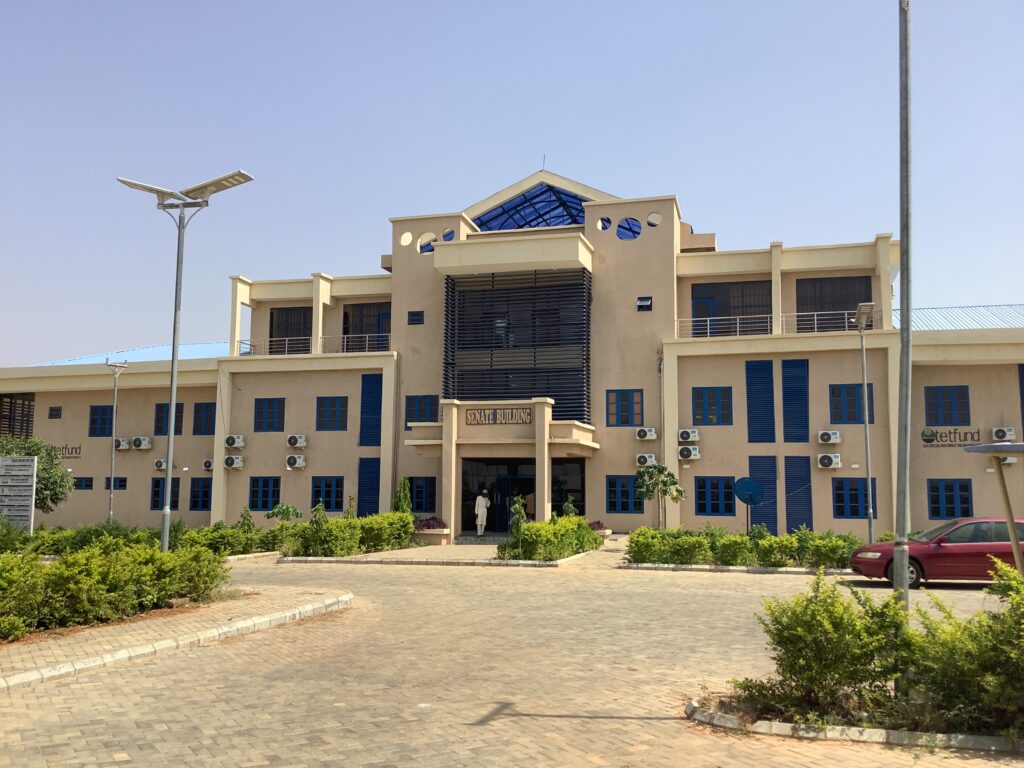The Department of Computer Science prepares students for impactful careers in the ever-evolving world of technology. As a cornerstone of the Faculty of Science, we offer a comprehensive curriculum encompassing core computer science principles and specialized tracks in [Artificial Intelligence, cybersecurity, data science, software engineering]. Our rigorous program combines theoretical foundations with hands-on experience using state-of-the-art technologies and industry-standard tools such as Python, Java, C++, cloud computing platforms]. Students engage in challenging projects, research opportunities, and internships, developing critical thinking, problem-solving, and collaborative skills essential for success in diverse technological fields.
Programmes

- BSc. Computer Science (Full-time)
- BSc. Computer Science (Part-time)
- PGD Computer Science (Full-Time)
- MSc. Demography and Social Statistics (Full-time)
Admissions Requirements
OLevel Requirements
Mathematics
Physics
English
and any of Chemistry/Economics/Geography/Technical Drawing/Bricklaying/Block laying/Engineering Drawing
UTME
MATHS
PHYSICS
CHEMISTRY/ECONOMICS/GEOGRAPHY/TECHNICAL DRAWING
OLevel Requirements
Mathematics
Physics
English
and any of Chemistry/Economics/Geography/Technical Drawing/Bricklaying/Block laying/Engineering Drawing
DIRECT ENTRY
- For entry into 200 Level, candidates should have Ordinary National Diploma in Quantity Surveying at a minimum of Upper Credit level from a recognised polytechnic.
- For entry at 300 Level, candidates should have obtained upper credit in Higher National Diploma in Quantity Surveying from a recognized polytechnic.
What you will study
- GST111 – Communication in English
- GST112 – Nigerian Peoples and Culture
- COS101 – Introduction to Computing Science
- COS102 – Problem Solving
- CSC104 – Introduction to Computer Programming
- CSC103 – Software Application Skills
- MTH101 – Elementary Mathematics I
- MTH102 – Elementary Mathematics II
- MTH103 – Elementary Mathematics III
- PHY101 – General Physics I
- PHY102 – General Physics II
- PHY107 – General Physics Practical I
- PHY108 – General Physics Practical II
- PHY106 – Introduction to Basic Electronics
- STA111 – Descriptive Statistics
- STA122 – Statistical Computing I
- GST202 – Logic Philosophy and Human Existence
- GST201 – Communication in English II
- CSC205 – Discrete Structure
- PHY201 – Elementary Modern Physics
- MAT205 – Linear Algebra II
- MAT207 – Introduction to Numerical Analysis
- GST204 – Peace Studies and Conflict Resolution
- CSC204 – Computer Hardware
- CSC206 – Fundamentals of Data Structures
- CSC201 – Computer Programming II
- CSC202 – Computer Programming III
- GST203 – History and Philosophy of Science
- CSC203 – Operating System I
- PHY212 – Digital Electronics
- MAT201 – Mathematical Methods I
- CSC208 – Foundations of Sequential Programming
- PHY202 – Foundation electric circuit and Electronics
- MAT204 – Linear Algebra I
- CSC312 – Compiler Construction
- CSC301 – Structured Programming
- CSC302 – Object-Oriented Programming
- CSC318 – Computer Graphics
- CSC316 – Web Technology II
- CSC317 – Image and Video Processing
- CSC311 – Computer Networks Fundamentals
- CSC319 – Embedded Systems
- CSC308 – Algorithms and Complexity Analysis
- CSC320 – Autonomous Systems
- CSC309 – Computational and Numerical Methods
- GST301 – Entrepreneurship and Innovation
- CSC313 – System Administration And Network Services
- GST302 – Venture Creation and Growth
- CSC314 – Transmission Control Protocol/Internet Protocol
- CSC303 – Computer Architecture and Organization I
- CSC307 – System Analysis and Design
- CSC304 – Data Management I
- CSC305 – Operating Systems II
- CSC398 – Student Industrial Work Experience Scheme (SIWES)
- CSC310 – Computer Architecture and Organization II
- CSC306 – Formal Method and Software Development
- CSC315 – Web Technology I
- CSC499 – Research Project
- CSC413 – Web Services
- CSC405 – Data Management II
- CSC409 – Network Systems Programming Languages
- CSC404 – Human Computer Interaction
- CSC401 – Organization of Programming Languages
- CSC410 – Special Topics In Software Engineering
- CSC403 – Software Engineering
- CSC407 – Artificial Intelligence
- CSC402 – Computer Networks /Communications
- CSC412 – Queuing System
- CSC416 – Computer Simulations
- CSC415 – Robotics
- CSC411 – Audio Processing
- CSC414 – Computer System Performance Evaluation
- CSC406 – Net-Centric Computer
Research Interest
- Artificial Intelligence
- Cybersecurity
- Networking

